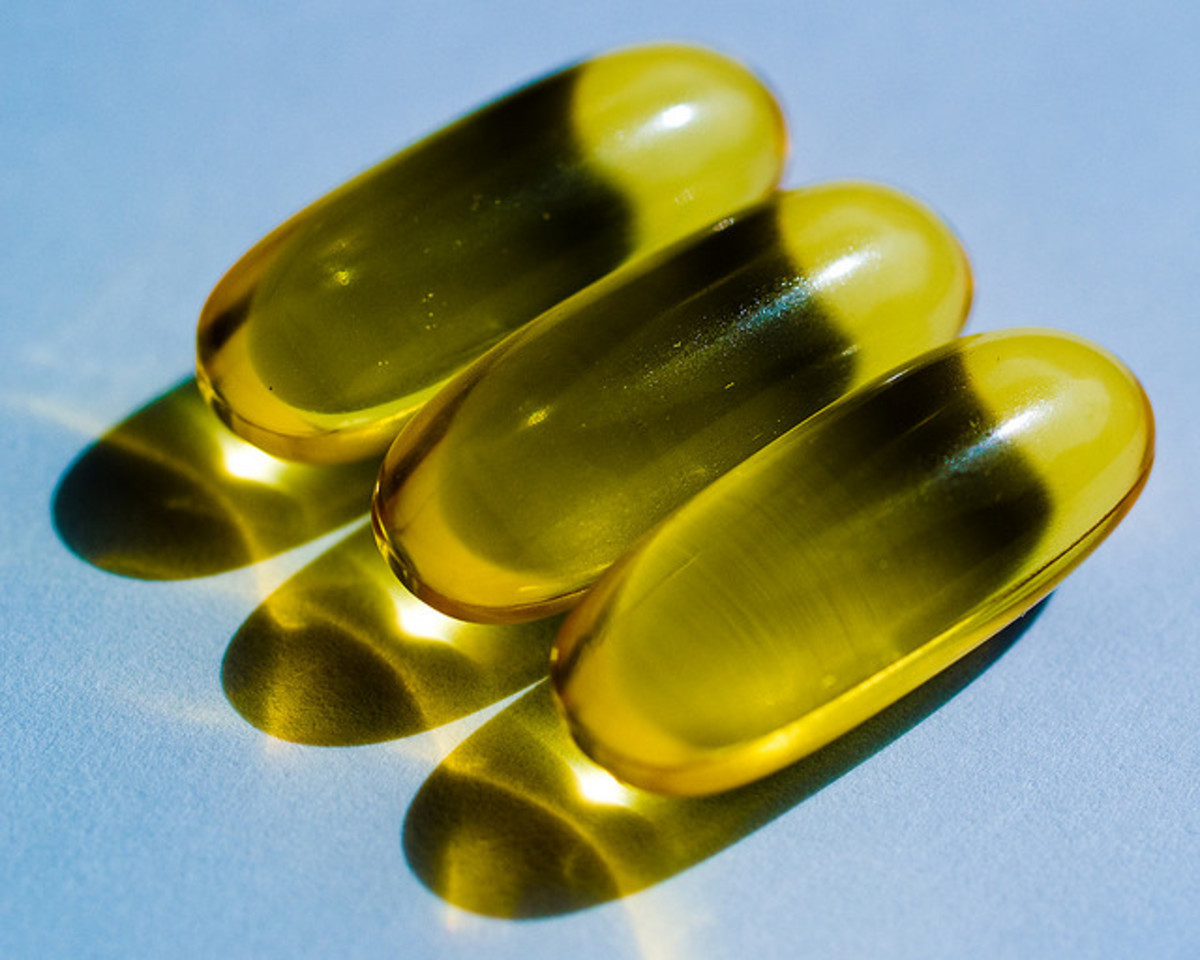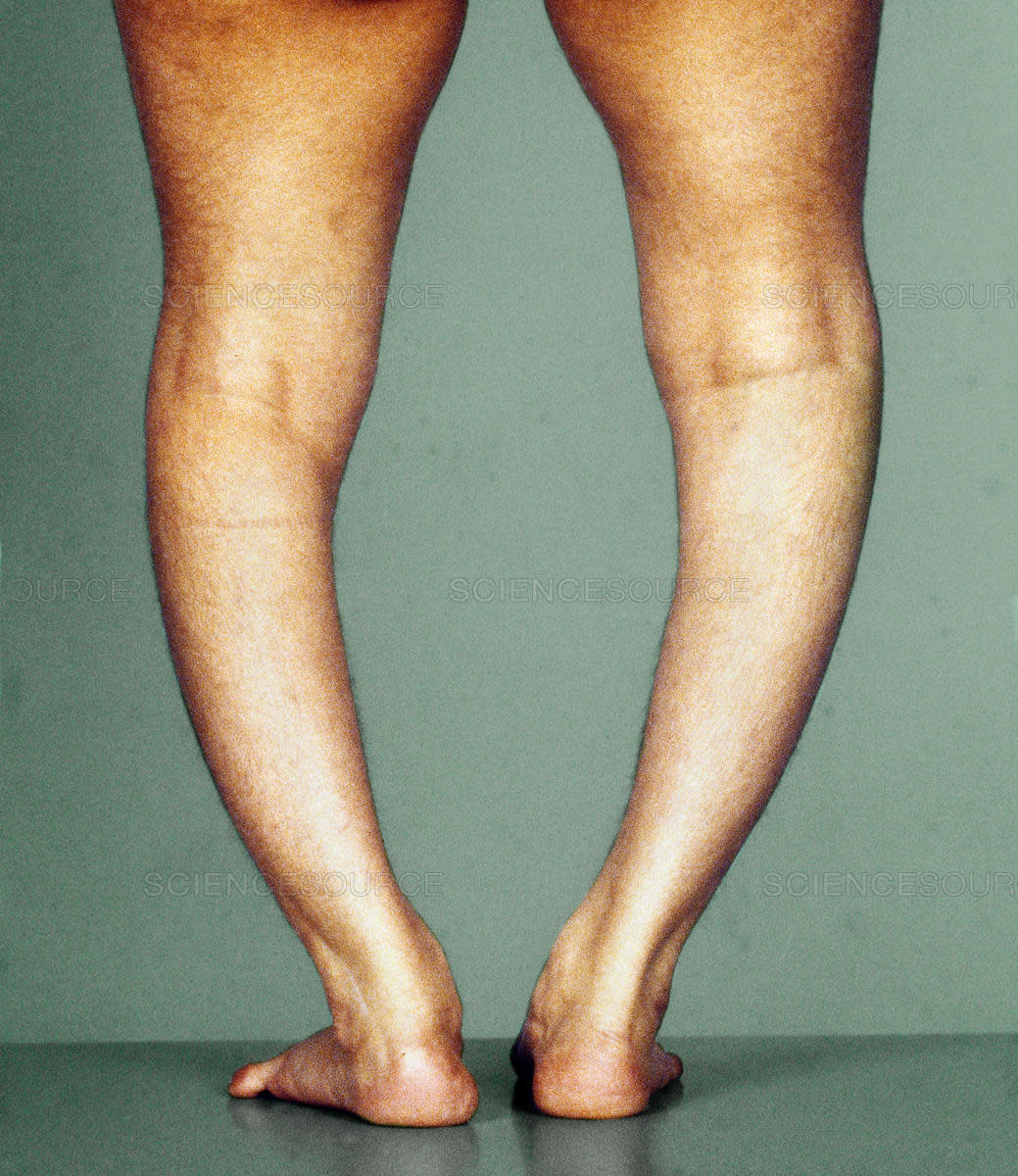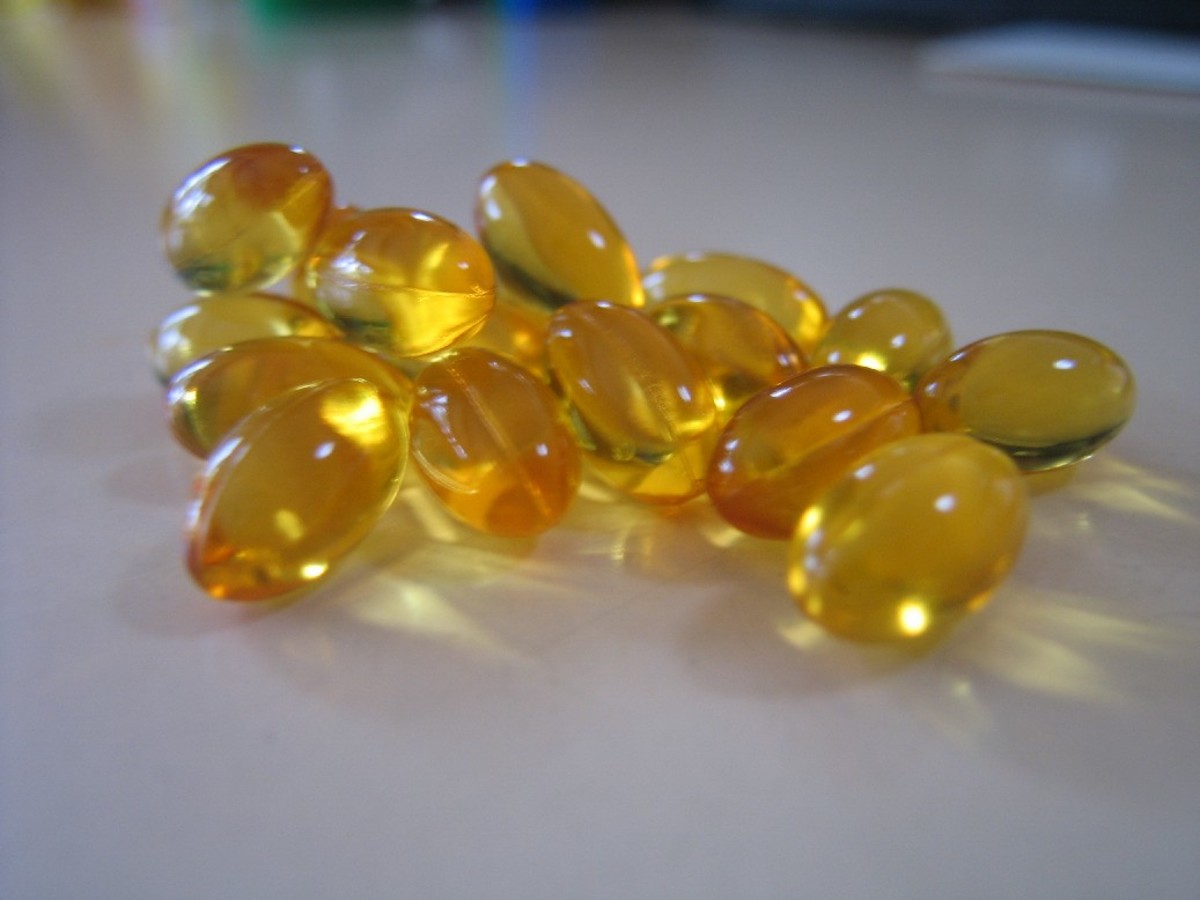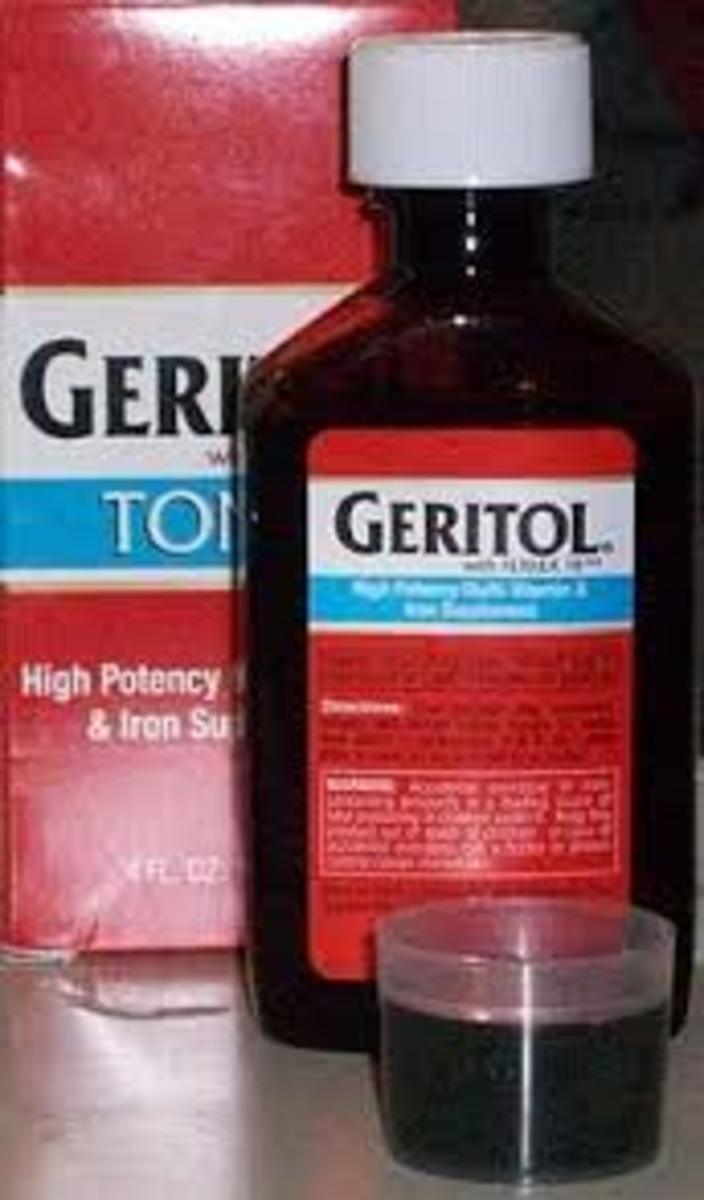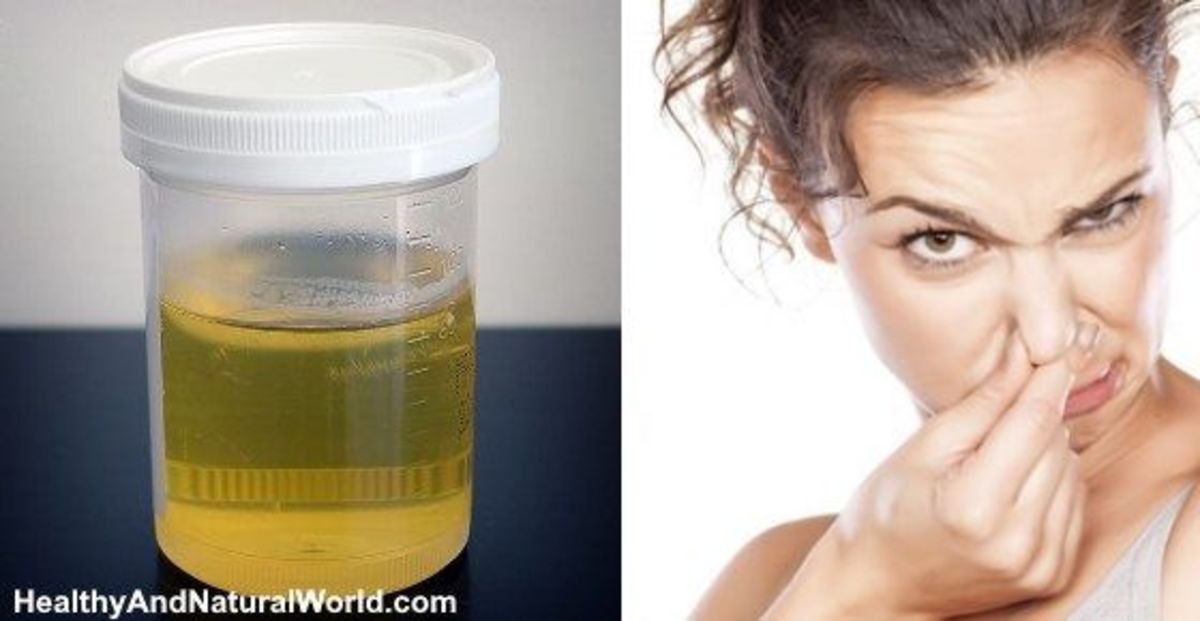Vitamin D Deficiency-More Common Then You May Think
Vitamin D, An Important Source Of Good Health And Well-Being
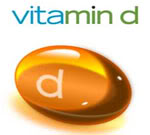
A Deficiency Of Vitamin D Can Make An Otherwise Sunny Day A Bit Clouded

Optimal Levels Of Vitamin D Aids In The Prevention Of Diseases That Are Caused By Its Deficiency

Vitamin D Is Often Referred To As The Sunflower Or Sunshine Pill

Cheese-An Excellent Source Of Vitamin D3

Solgar 1000 I.U.s of Vitamin D3

You can soak in all of the sunshine by continually basking in the sun and drink up all of the calcium fortified milk, that you could get from the full nipples of a select group of cows. And after it's all said and done, your physician on a most recent visit, may have informed you, that you still have less then optimal levels of vitamin D in your blood.
Simply put you have a vitamin D deficiency. So how could that be you ask yourself as well as your doctor, after you reassure him/her that you are an avid sun basker and milk drinker? Good question isn't it and maybe one that has no real explanation.
Well the real low down about basking in the sun and consuming large amounts of pasteurized cow milk, or other dairy product for that matter, really is not any guarantee, that you will never develop a vitamin d deficiency. Sure it's true that UV exposure from the sun and dairy products, are usually high in this important vitamin.
But the fact is that there are many more people than you think-both men and women, who consume their fair share of milk and receive more than their daily individual doses of vitamin D through old Sol. And still the laboratory blood test that their doctor has just ordered, still shows that the same individuals have very low levels of this vitamin circulating in their bloodstream.
So if the blood tests that recently came back indicating you, or possibly me, show low levels of vitamin D. Than could those resulting lab tests be showing erroneous results, or are they correct in their overall assumption and evaluation of your vitamin D levels for instance? Well it could be that those blood tests could be inaccurate indeed, however that chance is usually very slim, but not always.
There are more chances of a medication error occurring in a hospital for the most part, than a laboratory test result being wrong. But it is not impossible and someone by error could always mix up your blood work with someone elses, something that is not inevitalble at all. And more likely to happen from time to time then you previously thought.
So what causes an extremely low level of vitamin D in any given man, or woman and how can it be prevented and/or treated in the long run? Good questions are they not? But to learn more please read on further as the mystery of vitamin D deficiency can unravel without due warning. And in addition can happen to just about anyone unexpectedly and at anytime.
First off, to educate the reader so he/she has a better understanding of vitamin D and its role in health. One first has to really understand just how essential vitamin D, is to the human body and its organs. To begin with, vitamin D is a fat soluble vitamin that engages phosphorous and calcium and draws it up like a straw, into the bones.
Vitamin D is also very important in maintaining a strong and healthy immune system. Overall vitamin D assists with the formation of a hard skeletal structure in turn. As previously touched upon, vitamin D is also formed in the skin with the assistance of ultraviolet radiation being absorbed into the skin, as a direct result of sun exposure.
It is also true and worthy of mention, that individuals who are deficient in vitamin D, do not spend a great deal of time under the sun. Generally the explanation for this is that they live in a climate, or environment such as Alaska. Here for example, any give day in this type of climete can be much shorter and cooler overall, than they would be in Florida.
So as you can see from this comparison, someone living in Alaska, may be more prone to develping a vitamin d deficiency than someone in Florida. However this too can depend on a variety of factors as well.
In children this can at times be more of a problem than in adults, especially if they receive less sun exposure and reside in cooler temperatures with their family. So vitamin d deficiency in children who also are subjected to these conditons on a continual basis, could certainly end up being deficient in this vitamin as well.
In children low levels of vitamin D is termed Rickets and usually is a direct result of contributing environmental factors, or lack there of. Rickets is a disease that was more prevalent in the early 1930's, however it has not gone into hiding and a child could still readily develop the disease, if they are severely deficient in vitamin D.
A vitamin D deficiency in adults for a long and undiscovered period of time, can result in a vitamin D deficiency called Osteomalacia. And a result of Osteomalacia is softening of the bones. Many of us also forget how important this vitamin is in its overall functioning and support of the cardiovascular system.
The reason why it is so important in heart function and health, is because it lets an influx of calcium (Ca+) ions to accumulate in the blood. And this in turn is a good thing because it could prevent future heart attack and strokes. Do you remember your mother telling you to be a good boy, or girl, and drink up all of your milk in the cereal bowl, or in the glass of milk sitting on the dinner table?
Well I hope you listened to her at least half of the time and drank a couple of glasses throughout the day. If you didn't than it not only went in one ear and out the other, but you may, or may not now, be more prone to disease that could occur, when there is an absense or deficiency of vitamin D.
In the previous paragraph I spoke a little bit about the importance of drinking your milk. And as the years passed-if you had not consumed enough of it, there may be a remote chance that you in turn, could have increased your overall risk of cardiovascular disease...(ie.) Stroke and Myocardial Infarction.
Well you want to keep those arteries in your brain and heart, which are called coronary arteries, as clear as possible. You have to remember coronary and arteries within that round thing on top of your shoulders, is not that big to begin with in the first place. And NO!-I'm not referring to your brain, I'm referring to the arteries that are intricately intertwined delicately within that grey matter.
In fact they're rather minute, so if you do not have the proper exchange of calcium ions entering your body, to prevent disease from occurring within the heart for example, than you may want to have your doctor check your vitamin d levels a few times a year.
And if you do have a deficiency, then please take the appropriate steps to correct your deficiency asap, before it causes irreversible problems. A lack of vitamin D in the blood can and eventually will cause an increase in the amount of plaque within those already small coronary arteries for example.
A continual accumulation of plaque, or calcium deposits, cannot only reduce pliability and/or overall flexibility of the arteries, but it can also severely reduce blood flow-resulting in a higher chance of heart attack, or stroke in occurring. So try to keep in mind that milk is your friend, and you're never too old to drink this frothy white substance that comes from another friend that you forgot about-the cow!
A lack of vitamin D can also cause a decrease in the amount of lung infection, or respiratory infections that one may experience throughout any given season for example. Vitamin D also reduces the severity of those lung infections, whether they're viral or bacterial in origin.
I also touched a little bit about vitamin D's importance in improving the overall functioning of the body's immune system. How true this also is and if you improve your body's immune system health, you can also help in preventing future respiratory infections, that make breathing somewhat labored.
Breathing can be very difficult in itself, for people who develop chronic respiratory problems, like the common cold. But in diseases such as (COPD)-Chronic Obstructive Pulmonary Disorder and Asthma. These two aforementioned diseases alone, can cause an individual suffering from them, to have their breathing made much worse, especially if they lack optimal levels of vitamin D in their circulating blood, or have a vitamin D deficiency.
These are only a few of the advantages that this important vitamin can do for a majority of the body's internal organs. And there are many others that will benefit from with adequate amount of vitamin D as well. I want to mention that not only cancer, but also depression, can be a direct cause of vitamin D deficiency, as can many other prominent disease and illnesses that plague the human body.
So if you have been diagnosed recently with a mood disorder, such as manic depressive, or Bipolar disorder, than possibly the blues are weighing a bit more heavily on you lately. And this could also be a direct cause of a vitamin D deficiency.
Vitamin D as some may not be aware of can be found, or comes in five different forms. D1, D2, D3, D4 and D5. (Ergacalciferol)-D2 and (Cholecalciferol)-D3, are the most important to humans. The active form of vitamin D is called (Calcitrol). And as also earlier noted in the article, vitamin D in this form is received in turn from supplements, food and ultraviolet exposure from the sun. In addition it's also worthy to mention that vitamin D deficiency occurs only when the sun's UV index is 3, or greater then 3.
Calcium and Phosphorous obtained from existing food in the stomach is reabsorbed in the kidneys. This resulting process increases the overall amount of calcium in the blood. So which form of vitamin D is more important for us human's overall...vitamin D2, or its close counterpart, vitamin D3? Actually both are equally as important as the other in the prevention of disease. This is according to some scientists, however it does appear that vitamin D3 (Cholecalciferol) gets the majority of votes by a very slim margin.
Getting about fifteen minutes of sun, twice during any given week, is more then sufficient in producing vitamin D in adequate amounts. However this really pertains mainly to individuals who reside in areas like the tropics and Florida for example. Other influential factors can affect the amount of sun exposure we receive throughout the seasons-including lack of sunshine, applications of sunscreen (Ie.) 45 SPF and higher.
And in addition to those, smog and fog can also play an important part on how much vitamin D we receive from UV exposure. So in summarizing up what you have read so far...what if you think that you're that individual, who has been found to have a deficiency of this vitamin, according to recent laboratory findings, as reported by your physician? Well there are a number of things you can do for starters. However your healthcare provider will most likely recognize the deficiency as noted on the most recent lab reports.
Your physician will most likely act at that point and recommend a pharmaceutical grade, or prescription strength form of vitamin D for you to take. And this high dosage form of vitamin D, will only be able to be obtained from your physician. These capsules are usually green in color and are an average size softgel, something like the picture referenced at the beginning of the article.
Usually this prescription grade vitamin D is taken as one capsule per week, every week for the next ten weeks. Afterward your doctor will test your vitamin D levels again to make sure that they are within the normal referenced ranges. I want to point out at this time that many individuals also taking medications, do not often adhere to the label on the prescription bottle.
Just because it is a vitamin, does not mean that it is not of prescription strength and can not cause side-effects, or interact with other medicines that you may also be taking at the moment. So always check with your phsyician, if you're unsure about something, or how you should take prescription grade vitamin supplements as well.
Just to reiterate how important it is to read and comprehend the instructions on a medicine bottle. I'll give you an example of an individual who I know, who mistakenly took it for granted and forgot to read over their Vitamin D prescription. As per instructions, they were supposed to take one tablet per day and not one per week.
There were no real side-effects that occurred because of the error on their part. Except maybe for a slight ache in their kidneys. The reason for this is that the kidney's were working a bit too hard to get rid of the extra vitamin D that their body did not need at the time. Drinking a large amount of fresh water is the solution if this ever happens to you.
Your Pharmacist or Physician will tell you the same thing. However if this was some other type of medication...blood pressure medicine for example, well you can see that the resulting side-effects may have been a lot worse than just having you kidneys ache for awhile, until you flushed them by drinking fresh water. Simply stated...reading the instructions thoroughly, and carefully, can prevent an unnecessary trip to the ER to have your stomach pumped out.
If your doctor doesn't feel that your vitamin D levels are low enough to warrant taking a prescription strenth dosage of vitamin D. Then he/she may suggest that it's just a little out of range and you would benefit by going to the pharmacy, or ordering online, a brand of vitamin D that is at least 1,000 I.U.
1,000 I.U of (OTC)-Over The Counter non-prescription strength vitamin D, is usually sufficient enough to prevent a vitamin D deficiency in any given individual. And that of course depends on if you do not have any other undetected, or underlying disease processes going on at the same instance....(ie.) Undetected cancers, Osteoporosis, or Osteomalacia for example. 1,000 I.U. is also recommended to protect the body from related vitamin D deficiency problems and is also the recommended dosage to further prevent disease.
If you're already taking a supplement of vitamin D, on the advice of your physician, then that is fine and you should be receiving an adequate dose of vitamin D. However if this is not the case and you would like to prevent a deficiency of vitamin D in the future, then it may be necessary for you to change your current dietary habits. Increasing food types, or foods richly fortified with vitamin D, is a good way to begin.
This could in the long run, be a definite solution, to preventing a vitamin D deficiency issue, from ever surfacing in the first place. Remember we are a society that is constantly on the go and are more apt to stop at a Burger King, or stop into visit our other friend-Ronald McDonald at the Golden Arches, to refuel satisfy that hunger, then to head home and cook a nice healthy dish of salmon, halibut, beef liver, or a three cheese pasta.
All great dinner choices that are very high in vitamin D, but also some that may be less than appealing to a majority of the reader audience. I know it's probably easier said than done. And you would rather watch Emeril, Bobby Flay, or one of your other favorite television chefs cook up a yummy dinner like this. But once you get in the habit of cooking more fresh and vitamin rich foods such as the ones mentioned, you will find that it's a lot more easier than you previously thought.
There are recommended (DRI's) Dietary Reference Intakes, that have been created by the Nutrition Food Board. These dietary recommendations suggest that as we grow older, we should in turn be increasing our total amount of calcium. I know you have probably heard this somewhere else before, but it is basically common sense.
As we age our bones become fragile and brittle and other organs, as well as members of our bodies, tend to soften. So with that said you will find that if you are over seventy-one years of age for example. Than you should be consuming, or taking a mulivitamin supplement containing 15mcg. or (600 I.U.) of vitamin D.
At age seventy-one or younger, an individual who fits this age criteria, would not only possibly have a soft member, but would need only (10 mcg.), or (400 I.U.) of vitamin D. And those of us who are younger adults, who have not yet reached our senior years should be consuming enough vitamin D, in the form of a supplement, or by eating the proper foods. So for this group of individuals-(5 mcg.), or (200 I.U.) of vitamin D would be more than adequate.
For children who are thirteen years of age and younger- 5 mcg. or (200 I.U.) of vitamin D is also recommended. In addition, it's also noteworthy to mention that any moms who are breast feeding their babies, should be supplementing them with an additional (400 I.U.) of vitamin D per day shortly after they are born. Non-breast fed infants and their mothers should also adhere to this same recommendation as suggested by the American Academy Of Pediatrics (AAP).
So as you can gather from what you have read in the article to this point. That correcting a spiraling vitamin D level, could be as simple as changing your diet to further flood your blood stream with nutrients from foods that are very high in vitamin D. I also touched upon a few of those food groups earlier in the article. However the following foods, particularly fishes, are high in vitamin D. They are...Tuna, Mackerel and Salmon.
In addition to being high in vitamin D3 for example. These fish types are also very high in another essential vitamin that is important in the production of healthy blood cells. And that would be vitamin B-12. Having a good amount of this vitamin, as well as vitamin D3, can promote overall health and longevity and even ward off the aging process to some extent.
Besides fish being high in vitamin D and vitamin B12, fish liver oils, have also shown to provide a lot of benefit to those lacking these important and essential vitamins in health. The only problem may be is that you could have somewhat of an issue stomaching this oil because of its rather unpleasant taste.
Do you remember your mom giving you a dose of fish liver, or cod liver oil when you were a kid? Well if you can relate to me using this as an illustration, than we are on the same page and you know the feeling you get, when you stick your finger in the back of your mouth.
I have friends that tell me their tired all of the time-I hear it almost incessantly, and its completely normal to be tired after a stressful day. But what can be defined as tired all of the time? Well maybe if you're tired each and every day for no known reason, then possibly there are some other underlying factors causing your tiredness that will have to be investigated further.
One thing is for certain and that is, that a combination of vitamin D3 and Vitamin B-12 taken at the suggested doses and appropriate amounts during any given week,month, or similar interval, can certainly not hurt. You should even see an increase in stamina and overall agility with time.
Nothing happens overnite, when there is a deficiency in a vitamin, or a certain disease state that is causing illness within your body. Things are happening for a reason and have to be corrected sooner than later. Eating the correct foods to prevent that vitamin D deficiency once again, is a good place to start.
Before you know it you will be performing like your old self once again-just remember that patience is a virtue. If you want to feel like that real live human dynamo that recently got rid of the lead in their pencil.. Than you have to follow and stick to the plan and act accordingly. But before you begin taking any vitamins or wonder drugs on your own initiative, please by all means-seek the advice from your doctor, no matter how wrong you think they may be at times. A little advice to go on, is better than none.
So remember these few basic important steps and you should be able to reverse an otherwise vitamin D level that is well below your recommended levels . Being aware and getting your blood tested for deficiencies in all blood serum vitamin levels is a good place to begin. And remember most importantly to take vitamin D on a regular basis, especially important as you reach the golden years.
There are many different brands of vitamin D on the market and there is also a vitamin D supplement that is available online and at health food stores in the liquid form-the same as you find with the sublingual (under the tongue) form of vitamin B-12.
So try to remember if you think you're not eating the correct food groups on a weekly basis to achieve normal, as well as optimal levels of vitamin D. And if you're not a frequent beach goer, or sun worshipper and live in a climate that is not as sunny as Florida's or similar to Seattle's, which tends to be overcast a great deal of the year.
Than don't be too shy in taking in a vitamin D supplement equivalent in strength, of between 400 and 1000 I.U. per day. But also always check with your doctor first' to make sure this is adequate for you.
But most importantly by far-don't forget to drink at least three glasses of what I like to refer to as natures honey, and that's milk-at least three times a week. Doing all of this and more can only help to keep your bones, teeth and internal organs in tip top shape, and prevent disease from eventually, getting the best of you.
One other final, as well as good rule of thumb to keep in mind and that is...no one individual is completely free and immune from illness and disease, or from ever developing a vitamin deficiency, particularly that of a vitamin D deficiency, which can be more common then you may think!


